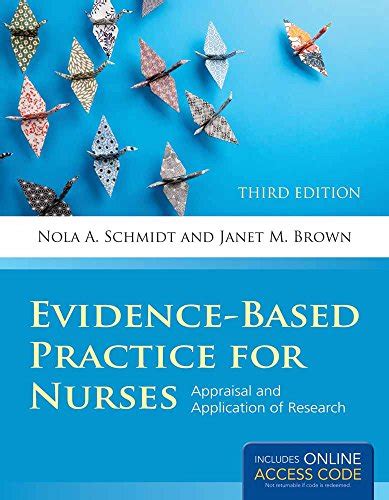Nursing professionals play a vital role in ensuring that patients receive high-quality care that is grounded in the latest scientific evidence. Evidence-based practice (EBP) is a crucial aspect of nursing that involves integrating research findings into clinical decision-making. However, many nurses may feel intimidated by the prospect of appraising research studies, which can be a daunting task. In this article, we will discuss the importance of EBP for nurses, the steps involved in appraising research studies, and provide practical tips for making the process easier.

Why is Evidence-Based Practice Important for Nurses?
EBP is essential for nurses because it ensures that patients receive care that is safe, effective, and tailored to their individual needs. By using research findings to inform clinical decisions, nurses can improve patient outcomes, reduce the risk of adverse events, and enhance the overall quality of care. EBP also promotes a culture of critical thinking and problem-solving, which are essential skills for nurses.
What are the Steps Involved in Appraising Research Studies?
Appraising research studies involves a systematic process of evaluating the validity, reliability, and applicability of the findings. The following steps are involved:
- Formulate a question: Identify a specific clinical question or problem that you want to address.
- Search for evidence: Conduct a comprehensive search of the literature to identify relevant studies.
- Critically appraise the evidence: Evaluate the validity, reliability, and applicability of the findings using a standardized framework.
- Synthesize the evidence: Combine the findings of multiple studies to draw conclusions.
- Implement the evidence: Apply the findings to clinical practice.

How to Make Research Appraisal Easier?
Appraising research studies can be a complex and time-consuming process. However, there are several strategies that can make it easier:
- Use a standardized framework: Use a framework such as the Johns Hopkins Nursing Evidence-Based Practice Model to guide the appraisal process.
- Focus on the study design: Pay attention to the study design, sample size, and population to determine the validity of the findings.
- Evaluate the quality of the evidence: Use tools such as the Cochrane Risk of Bias Tool to evaluate the quality of the evidence.
- Consider the clinical relevance: Evaluate the clinical relevance of the findings and their applicability to your practice.
- Seek support: Collaborate with colleagues or seek support from a mentor or librarian to help with the appraisal process.
Benefits of Evidence-Based Practice for Nurses
EBP offers numerous benefits for nurses, including:
- Improved patient outcomes
- Enhanced quality of care
- Increased patient safety
- Reduced risk of adverse events
- Improved job satisfaction
Challenges of Implementing Evidence-Based Practice
Despite the benefits of EBP, there are several challenges that nurses may face when implementing it in their practice. These include:
- Lack of time and resources
- Limited access to research literature
- Difficulty in critically appraising research studies
- Resistance to change

Conclusion
Evidence-based practice is a crucial aspect of nursing that involves integrating research findings into clinical decision-making. By following a systematic process of research appraisal, nurses can make informed decisions that improve patient outcomes and enhance the quality of care. While there are challenges to implementing EBP, the benefits far outweigh the difficulties. By working together, nurses can create a culture of EBP that promotes high-quality care and improves patient outcomes.





What is evidence-based practice in nursing?
+Evidence-based practice in nursing involves integrating research findings into clinical decision-making to improve patient outcomes and enhance the quality of care.
Why is evidence-based practice important for nurses?
+Evidence-based practice is essential for nurses because it ensures that patients receive high-quality care that is safe, effective, and tailored to their individual needs.
What are the steps involved in appraising research studies?
+The steps involved in appraising research studies include formulating a question, searching for evidence, critically appraising the evidence, synthesizing the evidence, and implementing the evidence.
